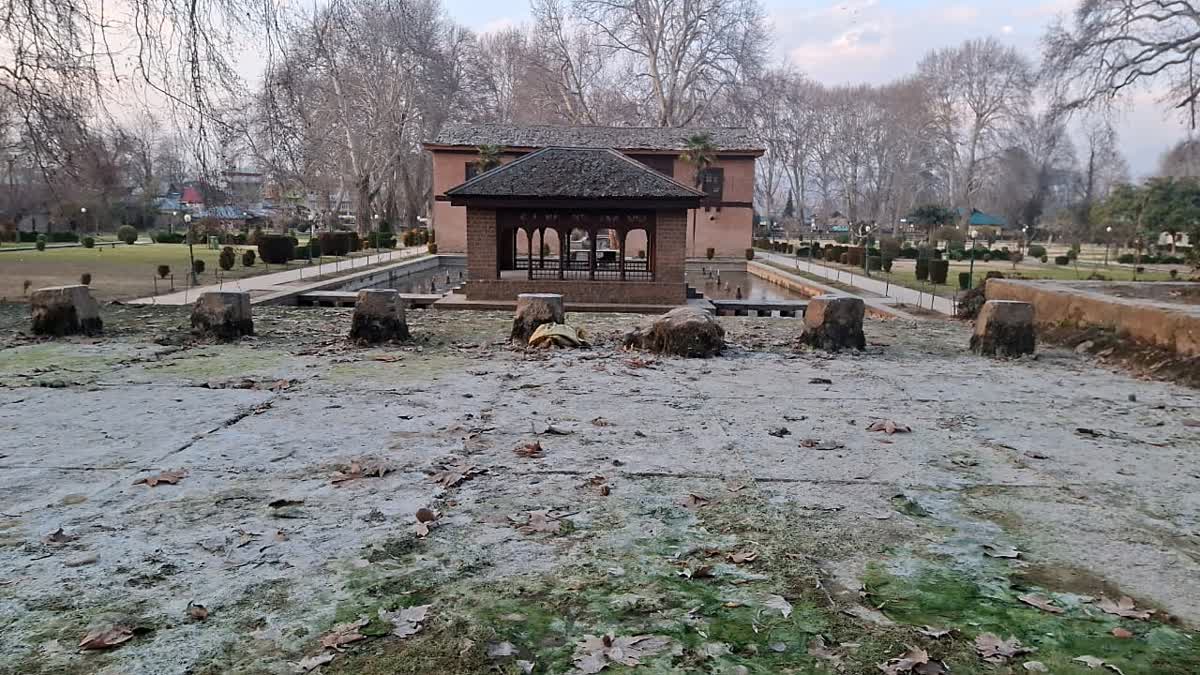By Mir Ishfaq
Anantnag: Kashmir’s natural springs, once known to offer uninterrupted water to the entire valley, are presenting a gloomy picture without water. Unpredictable climatic shifts, prolonged dry spells, and diminishing rainfall and snowfall have led to a sharp decline in groundwater levels in the region, according to experts. The phenomenon has resulted in the drying up of many of these lifelines, leaving people grappling with an uncertain future.
One such spring is located here in South Kashmir and is called Achabal Spring. The historic water source in the famed Achabal Mughal Garden has been a major attraction for locals and tourists alike due to its beauty and cultural significance.
“It’s for the first time in history that I see this spring drying up and the flow completely stopping, which worries,” said Shabir Ahmad, a local. “This situation in the Achabal Spring has affected the beauty of the garden and led to an acute water crisis for the surrounding areas,” he said.
According to Ahmad, people of many areas surrounding the garden rely on its waters for drinking and irrigation. He claimed that the local trout fish farms are also facing a risk as they were also dependent on the spring's water.
The Achabal Mughal Garden was built in the 17th century by Nur Jahan, wife of Mughal Emperor Jahangir. It has long been a major tourist attraction due to its lush gardens and flowing spring.
Another local told ETV Bharat that it was shocking for the people of the area and other nearby localities in the Anantnag district to see Achabal Spring drying up. “The spring was always there for us and provided us pure drinking water. However, we are forced to bring water in canisters from far-off places. Some people are now dependent on water tankers to bring it to their homes,” he said.
Not just Achabal but people from many surrounding areas are struggling hard to find enough clean water for their daily needs. “We are also afraid about the serious outcome for crops and local ecosystems that depend on a steady water supply,” said Ahmad.
Experts claimed that climate change and illegal human activities were the main two reasons for the drying up of these springs. The Bringi Nallah, which supplies water to Achabal Spring, has also been drying up, reducing the overall flow, they said.
Speaking to ETV Bharat, Dr Masoom Beg, an environmentalist, said unseasonably warmer temperatures are causing glaciers to melt faster and reduce the period for the availability of spring water.
“We have seen sudden and abnormal increases in temperatures during the winter months. This heats the water sources and leads to an increase in evaporation. This phenomenon leaves less water to recharge groundwater supplies,” he said.
“If this trend continues, we could face a major water shortage soon as springs have always been a lifeline for Kashmir’s rural areas,” Dr Beg warned.
He suggested a joint strategy to mitigate some of these impacts of climate change by preserving natural resources like forests and banning harmful plastic.
Read More



